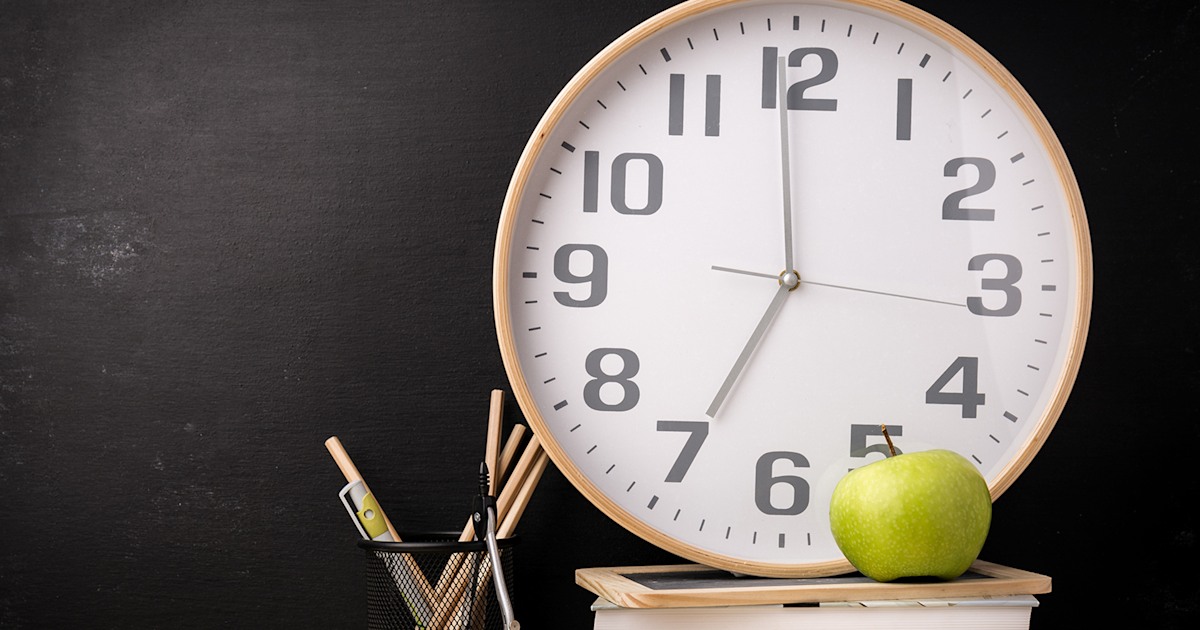For you maybe. but not for someone who has born in a digital world. What does it mean "a picture of reality" or "just numbers"? Time is a number. How long has been passed since 0:00.
I didn't talk about your town. I don't know where you live. I talked about what's
started to happen world wide. Your town may be too old fashion.
But since you're from UK (I assume) here some for UK news:
Some schools in the U.K. are reportedly ditching traditional analog clocks because students aren't able to tell time during tests.

www.today.com
Schools in the U.K. have decided to remove analog clocks because smartphone-dependent teens can't read them, a teacher's union said

www.cbsnews.com
Schools are removing analogue clocks from examination halls because teenagers are unable to tell the time, a head teachers’ union has said.

www.telegraph.co.uk
British school officials have begun removing traditional clocks from exam halls as students have been complaining that they can't read them

people.com
Or do Google :
schools are removing analogue clocks
I really am failing to understand your point. Digital time? What is digital time?
A clock or a watch is a device to show the time. Different types of clocks use different methods.
Measuring Time existed from the beginning and man kind has created different devices from several thousands years ago to describe it.
It didn't start with an analogue clock with two or three hands and surely it won't stop with it.
Here's different types from ancient methods:
- Sundial – Uses the shadow of a gnomon (a stick or triangular piece) cast by the sun to indicate the time.
- Water Clock (Clepsydra) – Measures time by the regulated flow of water from one container to another. Used by ancient Egyptians and Greeks.
- Hourglass (Sand Clock) – Uses sand flowing from an upper chamber to a lower one to measure fixed time intervals.
- Candle Clock – A candle marked with intervals burns at a steady rate, showing time as it melts.
- Incense Clock – A timed-burning incense stick with markers for timekeeping, used in China and Japan.
- Obelisk – Large stone pillars used by the Egyptians that functioned as giant sundials.
- Nocturnal (Star Clock) – A device used to tell time at night by measuring the position of stars.
- Oil Lamp Clock – Similar to candle clocks, these measured time by the steady consumption of oil in a lamp.
Evolution of Clocks:
- First mechanical clock was invented in late 13th century.
- First clocks with hands was introduced from late 14th and first 15th century.
- Minute hand was added in late 16th century and improved its accuracy in 1577 by Jost Bürgi
- Second hand was introduced in 1680s as a result of better gear mechanisms being available.
- The modern-style analogue clock, with clear hour and minute hands moving smoothly around a 12-hour dial, was widely used by the 17th century and became common in homes by the 18th century.
Do your really think this evolution will stop with our current clocks and won't change in future? If your answer is yes, then I have nothing more to say.




:max_bytes(150000):strip_icc():focal(999x0:1001x2)/daylight-savings-time-236ecabd40a34d838ac8cf67e1a5f4dc.jpg)